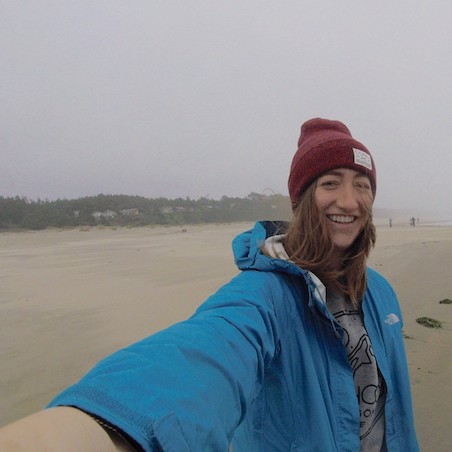Olivia Larkin
Senior Policy and Programme Manager, City of London Corporation
Bachelor of Arts (Hons), 2013
So many of my generation really do care about social justice and want to find ways they can do something about it.
“Being a young person today is hard,” Olivia Larkin says. “The job market is hard. The world is chaotic. It’s hard to know what you want to do. But if you can just try a few things, that helps you figure it out.”
That’s how Olivia made decisions. She says she travelled, introduced herself to different people and was open to all experiences. “But,” she says emphatically, her good fortune has allowed her to do it this way, not everyone can make those choices.
These days, Olivia is senior policy and program manager for the City of London Corporation. Her job—to help bring diversity to the senior levels of financial and professional services in a city where class can still play a prominent role.
It is about equality and social justice she adds.
Olivia was always interested in social issues but didn’t know what she wanted professionally when she came to King’s. She chose the Foundation Year Program (FYP) because of the expansive approach to what she describes as a “gap” in her knowledge.
“I like to question things. I like to understand why people do things, why things are the way they are. I think [FYP] gave great insight, at a hundred miles per hour,” adding it was “everything I wanted and more.”
Even though more education was beckoning, after FYP she decided to travel. That’s when she became very fond of India and has returned three times since. Every aspect of life in India is completely different from Canada. She says, “it can completely throw people off, but I found it thrilling.”
After India, she came back to Halifax to study international development at King’s and Dalhousie. “FYP teaches you to understand how others have thought about the world. International Development Studies teaches you what’s going on in the world, how countries work together from both a cultural and economic perspective.” The combination of the two, she adds, set her up for her next challenge.
“I realized there are so many options and so many jobs. I wasn’t sure which one I wanted. So, I talked with as many interesting people as I could. I met one man who had started a corporate social responsibility consulting company. I was totally fascinated.”
The man was Paul Klein, the company, Impakt. Pail asked Olivia to help on a project. She did, and it led to more. Impakt helps clients define and refine their corporate social responsibility programs.
Olivia uses their work with The Home Depot, addressing youth homelessness in Canada, as an example of how companies are managing corporate social responsibility. She says she started in this field “…right around the time when [corporations] started to think maybe there’s more we can do than just hand out cheques.”
One of her projects at Impakt was conducting extensive research for Green Shield Canada. Green Shield wanted to address the fact that one in three Canadians does not have access to affordable dental care. Olivia’s research kick-started Green Shield’s Green Door Project, which addresses the deficiencies in our system from capacity building through to public policy.
Olivia can’t say enough good things about Impakt and Paul. When she got a five-month internship with the Clinton Foundation in New York, Paul said to go and then come back to Impakt. When she wanted to travel for six weeks, he said—sure. When she decided to move to Berlin, they figured out how she could work remotely, even before the pandemic made that standard.
After five years Olivia left Impakt, moved to London, and was hired as chief of staff for Sir Tim Berners-Lee, the man who invented the World Wide Web. Olivia’s position was to support his goal of ensuring the web is a safe and empowering place for everyone. Every day was a balancing act, working on strategic projects, speech writing, acting as Tim’s representative at meetings, balancing his many roles, and whatever else the day gave—Olivia loved it.
“I had six months of travelling with him for speaking engagements and meetings, Boston, London, Milan—and then the pandemic hit, and I shifted to my dining room table for the next two years. Luckily many of the organizations Tim worked with, worked remotely already, so it was an easy pivot.”
Today she divides her time between her dining room table and an office housing the City of London Corporation. And she’s not “leaving anytime soon.”
What she loves is that London is made of many villages, and she can’t get over the 40-minute route she cycles a couple of days a week past Buckingham Palace, through Westminster and by Big Ben into her office in the financial district. She says she doesn’t know how it could get any better than this. Pausing just a moment, she adds, “But then, you know, the sky opens up and it’s pouring rain and you’re sliding around and there aren’t really enough streetlights on. You’re like, ‘Actually, it could get a bit better.’”
“I like to think of myself as a pretty passionate person,” she says. “The through line throughout my career is my passion for social justice and the need to do things better.” Olivia is grateful for the people she’s met, the teams she worked with, and the time spent with FYP tutors, who she says prepped her for this work.
Working with many like-minded people—at Impakt, the Clinton Foundation, with Tim—has given her real hope for the future.
“So many of my generation really do care about social justice and where they can do something about it. As we become the ones in charge, I think you’ll see changes.”
